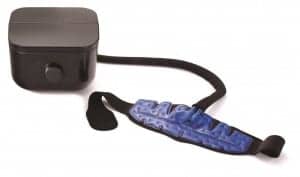Idorsia recently announced that Swissmedic has granted marketing authorization for QUVIVIQ (daridorexant) for the treatment of adult patients with insomnia characterized by symptoms present for at least three months and considerable impact on daytime functioning.
QUVIVIQ will be the first dual orexin receptor antagonist (DORA) available in Switzerland for the treatment of chronic insomnia. Rather than inducing sleep through broad inhibition of brain activity (sedation), QUVIVIQ blocks the activation of orexin receptors known for their key role in wakefulness. Consequently, QUVIVIQ decreases the wake drive, allowing sleep to occur, without altering the proportion of sleep stages.
The recommended dose of QUVIVIQ is one tablet of 50 mg once per night, taken orally in the evening within 30 minutes before going to bed. In certain circumstances, such as patients with moderate hepatic impairment or who are taking moderate CYP3A4 inhibitors, the recommended dose is 25 mg once per night.
“I am very proud that a little more than five years after Idorsia’s creation, we are so close to bringing our first product to patients in our home market. The discovery of daridorexant is the result of more than 20 years of research in our laboratories here in Allschwil. With QUVIVIQ, we are bringing the first and only approved dual orexin receptor antagonist to the Swiss market, offering patients with chronic insomnia disorder not only a better night sleep, both in terms of sleep onset and duration, but also an improvement in daytime functioning at the recommended dose. We have a great product paired with a great team in Switzerland, led by Alice, to get QUVIVIQ to patients as quickly as possible,” says CEO Jean-Paul Clozel, MD, in a statement.
“The approval of QUVIVIQ by Swissmedic is great news for patients suffering from chronic insomnia disorder in Switzerland. The Idorsia Switzerland team, based at Idorsia’s headquarters in Allschwil, is now preparing to make QUVIVIQ available to patients in Switzerland around mid-2023. I am confident that with QUVIVIQ we can revolutionize the way insomnia is treated in Switzerland.”
The Swissmedic decision is supported by Phase 3 results — published in The Lancet Neurology — which demonstrated that at the recommended dose, QUVIVIQ improved sleep onset, sleep maintenance and self-reported total sleep time in adults with chronic insomnia disorder. The effects of QUVIVIQ on sleep variables were observed early in treatment and were maintained over time. A major focus of the trials was to evaluate the impact of QUVIVIQ on daytime functioning in patients with insomnia disorder, as assessed by IDSIQ, a patient-reported outcomes instrument.
The recommended dose of QUVIVIQ demonstrated statistically significant improvement from baseline compared to placebo in the daytime sleepiness domain of IDSIQ, which means patients reported feeling less mentally and physically tired, less sleepy and more energetic during the day, at months one and three.
In clinical trials, the most frequently reported adverse reactions were headache and somnolence. The majority of adverse reactions were mild to moderate in intensity. No evidence of a dose-relationship for the frequency or severity of adverse reactions was observed. The adverse reaction profile in elderly patients was consistent with younger patients. Somnolence was reported in 3% and 2% of patients treated with QUVIVIQ 25 mg and 50 mg, respectively, compared to 2% of subjects on placebo.
Furthermore, no rebound insomnia or withdrawal symptoms indicative of physical dependence upon treatment discontinuation were observed in clinical studies, nor was there an indication of any drug abuse potential. The marketing authorization was also supported by a long-term follow-up extension study, which together with the pivotal trials, provides clinical data for up to 12 months of cumulative treatment.
Photo: ID 87514614 © Andrea De Martin | Dreamstime.com.




